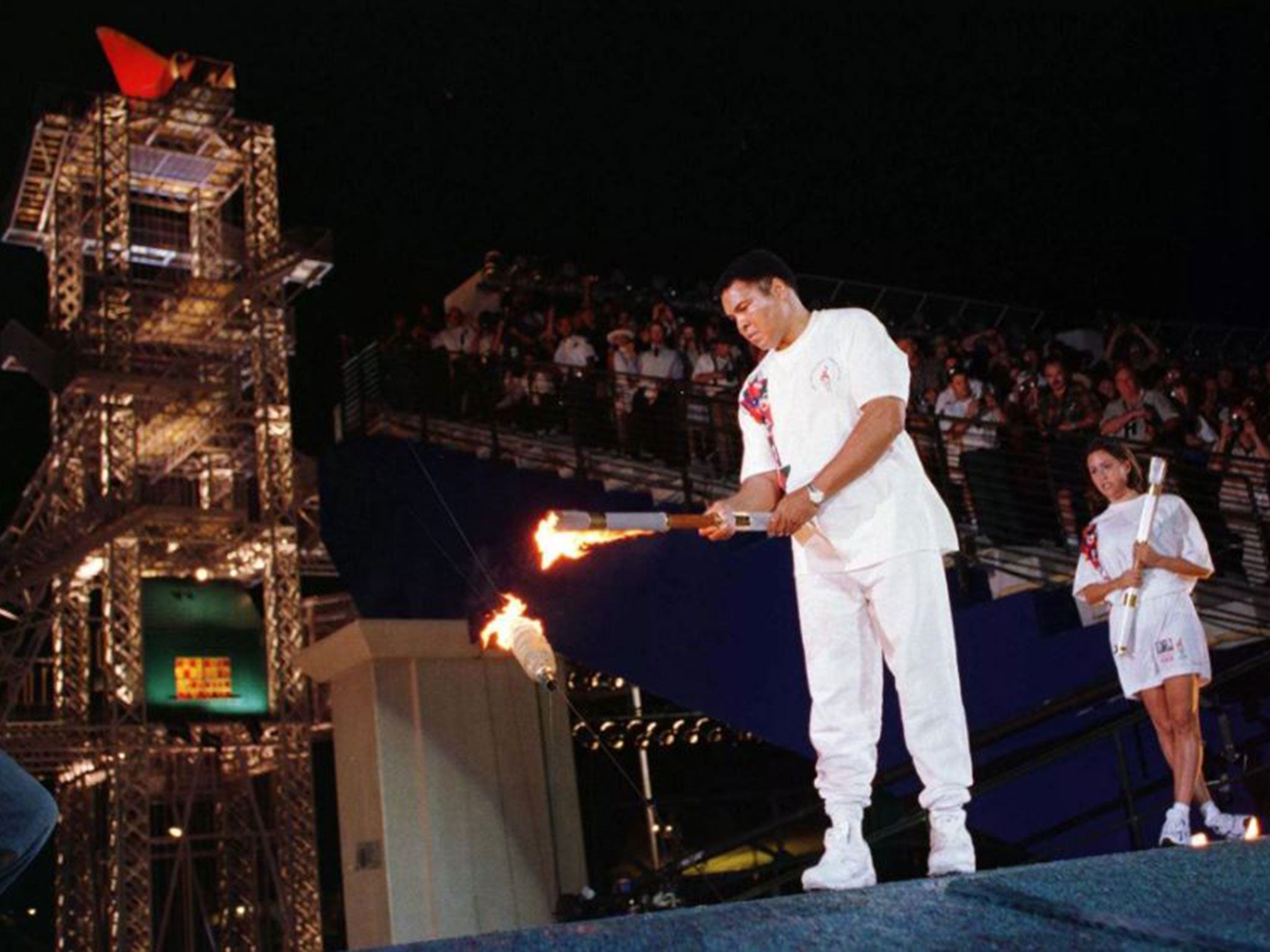Muhammad Ali dead: Boxing legend was a great warrior in the battle against Parkinson’s disease
No other moment in history did more to raise awareness of the disease, or to inspire the millions worldwide living with its cruel and often debilitating symptoms, than his lighting of the Olympic torch in Atlanta in 1996

Your support helps us to tell the story
From reproductive rights to climate change to Big Tech, The Independent is on the ground when the story is developing. Whether it's investigating the financials of Elon Musk's pro-Trump PAC or producing our latest documentary, 'The A Word', which shines a light on the American women fighting for reproductive rights, we know how important it is to parse out the facts from the messaging.
At such a critical moment in US history, we need reporters on the ground. Your donation allows us to keep sending journalists to speak to both sides of the story.
The Independent is trusted by Americans across the entire political spectrum. And unlike many other quality news outlets, we choose not to lock Americans out of our reporting and analysis with paywalls. We believe quality journalism should be available to everyone, paid for by those who can afford it.
Your support makes all the difference.When Muhammad Ali reached out a trembling arm to light the Olympic torch in 1996 – a moment that will live on in sporting folklore as long as his any of his knockout punches – he opened the world’s eyes to a disease that was then little understood, and became a hero for a whole new reason.
He was diagnosed with Parkinson’s in 1984 – just three years after his last fight. Having been the centre of the world’s attention for more than 20 years, he made relatively few public appearances until that day at Atlanta 1996. It was a closely-guarded secret that he was going to light the torch. He did so despite visibly shaking – the tell-tale sign of Parkinson’s. No other moment in history has done more to raise awareness of the disease, or to inspire the millions worldwide living with its cruel and often debilitating symptoms.
An incurable neurological condition caused by a loss of nerve cells in the brain, Parkinson’s leads to a loss of control over the body’s movements – leading to shaking, stiffness in the muscles and facial expressions, and slowness.
It can be managed with drugs and other treatments that are improving and evolving all the time, but the symptoms gets progressively worse. It doesn’t directly cause people to die, but it can complicate other conditions. Muhammad Ali died from a respiratory illness, but had been admitted to hospital on several occasions in recent years with other conditions including pneumonia and a urinary tract infection that would all have been complicated by his condition.
Boxing legend has it that it was the fierce, epic contests with George Foreman and Joe Frazier toward the end of his career that were the turning point for Ali’s health.
In truth, his condition cannot be conclusively linked to any one or two fights. Indeed, while one recent study has drawn a link between severe and repeated head injuries - such as those sustained by boxers - and a greater risk of Parkinson’s, experts don’t fully understand the causes of the condition. In some cases there may be an underlying genetic cause, while external factors such as exposure to pollution and pesticides have been mooted as possibly increasing risk.
We simply don’t know enough yet and experts have been at pains to point out that even if severe head injuries might increase the risk of Parkinson’s for boxers, that risk remains very low.
Ali’s own condition followed the course of millions of others, becoming worse and worse. In 1996 he could walk independently and light the Olympic torch. By the time of the London 2012 Olympics, where he again appeared in the opening ceremony, he required assistance, and appeared very frail.
The condition affected also his speech. People close to him had reportedly noticed it starting to slow even before his final fight in 1981. When he was interviewed on NBC, 10 years later, the interviewer struggled to make out what he was saying.
The condition did not however, eclipse his personality or sense of humour. Presenting Ali with the Presidential Medal of Freedom in 2005, George W. Bush’s playfully raised fists. The Greatest couldn’t deliver the sharp come-back one suspects he would have liked to, but he could make the crazy sign with his hand.
But Ali's contribution to our understanding of Parkinson's extended beyond just visibility and publicity.
With his wife Lonnie, in 1997 he helped to set up a Parkinson’s research centre that bears his name at the world-leading Barrow Neurological Institute in Phoenix, Arizona. Its work is driving forward the hunt for better treatments and, ultimately, a cure.
Dr Holly Shill, director of the Muhammad Ali Parkinson Center, paid tribute to the gift its founder had given to 1.5 million Americans, and millions more around the world, living with the condition.
“I have watched him face the disease with grace and humour, and he has inspired countless patients to do the same,” she said. “We have lost a great warrior in the battle of Parkinson’s, but hope continues for a better tomorrow. We will continue with the Center’s mission to improve the quality of life for those affected by Parkinson’s.”
Join our commenting forum
Join thought-provoking conversations, follow other Independent readers and see their replies
Comments